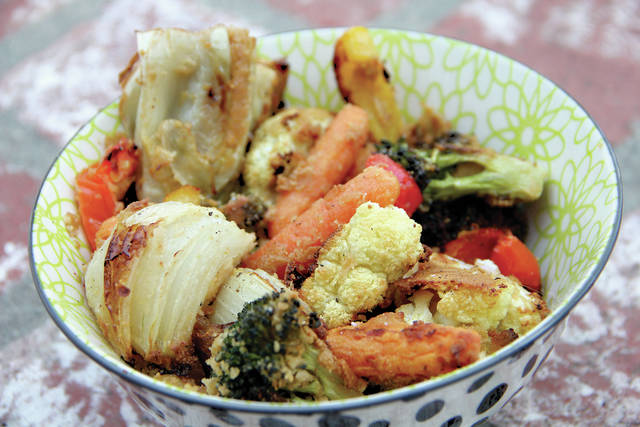I remember being told in marketing class back in graduate school that the fastest growing food category in America was hummus. Hummus, our professor insisted to us disbelieving students, would soon be ubiquitous. I should have heeded his advice and
I remember being told in marketing class back in graduate school that the fastest growing food category in America was hummus. Hummus, our professor insisted to us disbelieving students, would soon be ubiquitous. I should have heeded his advice and leveraged that bit of 1991 foresight in some way.
Chances are that if you have been to any kind of gathering lately, you have partaken in a hummus and veggie platter. Stores are filled with endless varieties of premade hummus, and homemade recipes flood the internet. With protein and fiber-filled garbanzo beans leading the ingredient list, it’s a filling dip that turns baby carrots and bell pepper slices into a worthy snack that will actually fill you up a bit. Both kids and adults seem to like hummus, so it is equally comfortable at a cocktail hour as it is at a kids’ soccer field.
The problem is: You always have leftovers. At least we do. Usually, I serve a couple of varieties, along with a triple-sized stock of veggies, because you never really know if the crowd skews more broccoli than carrots, so having veg backup seems wise.
After one of those occasions, I had the idea to toss the leftover veggies into the hummus and roast them. The hummus clung to the veggies just enough to give it a caramelized and tasty crust, and with one recipe, two leftovers were used up to create a whole new side dish or appetizer: Hummus-Crusted Roasted Vegetables.
The key is to roast at high heat, and to preheat the baking sheet, which will accelerate the caramelization of the veggies. Usually, I just toss the vegetables with the hummus in a large bowl with my hands. But, I’ve also thinned out hummus with a few tablespoons of lemon juice or water to make a batter to coat the veggies more completely, like a hummus tempura. Either way works.
Flavored hummus, like roasted garlic or red pepper, doesn’t usually need a boost, but feel free to stir in extra garlic, herbs or spices (a spoonful of pesto is delish). Even plain hummus works great, and takes about a minute to put together. After baking, sprinkle on a pinch of salt and squeeze of lemon, and your hummus-crudite platter will have found new life.
HUMMUS-CRUSTED ROASTED VEGGIES
Start to finish: 30 minutes
Servings: 6 servings
1 cup baby carrots
1 cup broccoli florets
1 cup cauliflower florets
1 cup bell pepper slices (red or yellow preferred)
1 small onion or fennel bulb, peeled and quartered
1 cup prepared hummus
Garlic or spices, if desired (optional)
1/4 teaspoon kosher salt
Lemons for squeezing
Line a large baking sheet with parchment paper and place inside the oven. Preheat the oven to 425 F, with the sheet pan in the oven. In a large bowl, toss the vegetables with the hummus, (and any optional garlic or spices if using), using your hands to coat the veggies. Do not worry if the mixture is a little clumpy or uneven. Once the oven is hot, remove the sheet pan, and carefully lay out the coated vegetables on the tray. Return to the oven and roast for 10 minutes. Remove the vegetables from the oven, and quickly turn the vegetables over. Return the vegetables to the oven and roast until desired tenderness, about 10-15 more minutes. Remove from heat, sprinkle with salt and lemon juice, and serve.
Chef’s note: Feel free to swap out vegetables for 4-5 cups of your favorites — a great way to use up hummus-crudite platter leftovers! Another version: stir enough lemon juice or water just until the hummus is smooth and creamy, like a thick batter, before tossing in the vegetables.
___
Nutrition information per serving: 101 calories; 36 calories from fat; 4 g fat (1 g saturated; 0 g trans fats); 0 mg cholesterol; 270 mg sodium; 13 g carbohydrate; 5 g fiber; 4 g sugar; 5 g protein.
___
Online: http://www.melissadarabian.net



